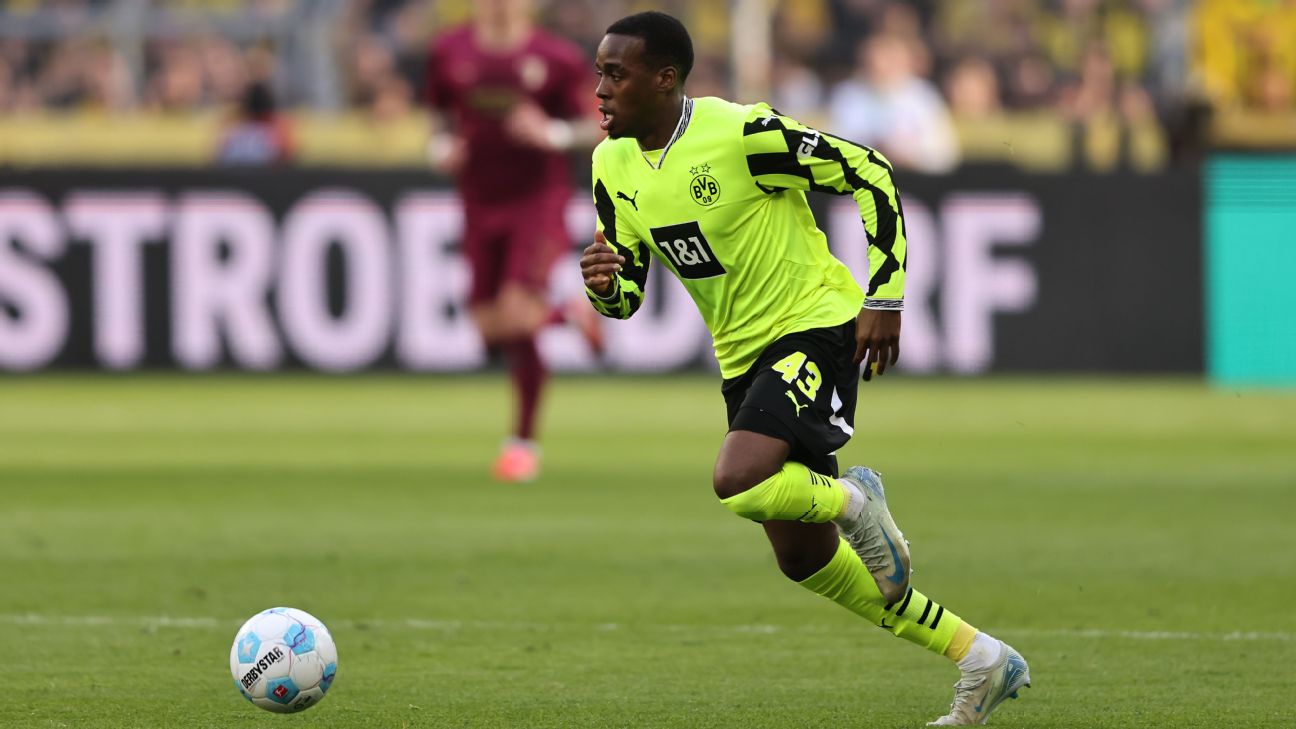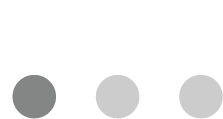Another summer, and another transfer window in which Borussia Dortmund have managed to sign one of the most exciting young players in Europe. This time, it is a familiar name around Signal Iduna Park: Jobe Bellingham, the younger brother of Jude Bellingham, who played for Dortmund from 2020 to 2023 and became a standout midfielder during his time with the Schwarzgelben.
“I’m very happy to be a Borussia Dortmund player now and to fight for titles together with this great club,” Bellingham said last week. “I want to play my part in celebrating success with these great fans here and will work on myself and with the team every day.”
Bellingham is no ordinary youth prospect. Just like his older brother, he played a considerable number of games in the EFL Championship and honed his skills. Dortmund’s sound scouting network and track record in youth development have earned the club the reputation of being one of the most productive football factories in Europe, which can be a differentiator in recruiting the game’s brightest young talents.
It’s also important considering Dortmund share their small corner of Germany with some of the country’s biggest clubs: Bayer Leverkusen, Schalke and Cologne, to name a few. Because of that competition for the most sought-after young players in the region, combined with football’s increasingly global nature, BVB can’t simply rely on local talent to stock their youth academy. Instead, the homegrown stars they do have are being supplemented by top prospects lured from academies abroad.
“In terms of the club from a bigger-picture perspective, it probably doesn’t make that much of a difference. It doesn’t really matter where the great player comes from. It could be from anywhere in the world,” Dortmund academy director Thomas Broich told ESPN. “But me personally, I have this ambition to produce homegrown players. I love the local kids and the idea of finding them at a very young age and just spending time with them over years trying to make them the best person, the best footballer they can be. And if they break through, if they make it into the first-team squad, there’s this factor of identification with the whole area, with the club.”
Scouring the list of youth prospects that have managed to break through at Dortmund in recent seasons, it’s clear most have come from outside Germany: Bellingham, Erling Haaland, Christian Pulisic, Jadon Sancho and Jamie Gittens. These players did not join Dortmund as 12-year-olds, but rather when their names were known in industry circles at a tender age, or after already making initial strides at the senior level.
“There’s so many agents approaching us because of our track record,” Broich explained. “So, the work that has been done in the past pays off big time now, not only in terms of the players that actually made it through — which was a tremendous success for us, which created real value for the club, which helped the players to become world-class players — but also now so many kids are eager to go that very path with us.”
A look at Dortmund’s squad reveals as much. Houston-born Cole Campbell joined from Breiðablik in Iceland at the age of 14. Julien Duranville came from Belgian giants Anderlecht when he was 16. United States youth international Mathis Albert left the academy setup of the LA Galaxy for Dortmund’s youth program when he was just 15. Samuele Inácio and Luca Reggiani (both 16 at the time) departed Italy’s Atalanta and Sassuolo, respectively, to get into the BVB pipeline.
“It’s a massive step for these kids and obviously for their parents as well to let go of them,” Broich said. “And the one thing that we need to do is we need to show them that we really care and they’re in very, very good hands. And what helps us is, I guess, that we have proof of concept. We’ve done it time and again.”
The club may have proof of concept in a well-worn path from Signal Iduna Park to big-money transfers to some of the biggest clubs in football, but what have BVB and their fans gotten out of that philosophy?
Dortmund have not won a Bundesliga title since 2012 and only two German Cups in the past decade. Back in the Jürgen Klopp era between 2008 and 2015, Dortmund were not necessarily viewed as a selling club — at least not one that that set out to move on their best players for huge fees. When Mario Götze and Robert Lewandowski left for Bayern Munich in 2013 and 2014, respectively, the BVB front office admirably fought to keep their burgeoning stars out of the clutches of their archrivals. Now, though, Dortmund seem more content with their reputation as an elite football factory, one that boasts talents who shine brightly on the pitch for a season or two before their inevitable transfer helps boost the balance sheet in the long run.
Developing players has become a significant revenue stream for Dortmund, considering the vast majority of them will move on at some point, and at least a percentage for a considerable transfer fee.
“Last year, we developed four players who then moved early to other clubs, Julian Rijkhoff to [Ajax], and Hendry Blank to RB Salzburg, Tom Rothe to Union Berlin, Paris Brunner to Monaco,” said Lars Ricken, Dortmund managing director for sport. “And for these players, we generated around €20 million within a couple of months. So, if they don’t make it here, we must at least benefit financially. And these departures to handle can be, of course, disappointing, but we have to understand the player needs.”
It makes sense for an executive to see it that way, especially when it comes to talents who were promising at one point but couldn’t quite break into the starting XI. As one industry source pointed out, though, Dortmund have, at times, deviated from their path and focussed on signing more mature players.
Following the 2023-24 season, when Dortmund disappointed domestically with a fifth-place finish in the Bundesliga, the club’s higher-ups decided to acquire a few experienced players: 27-year-old Waldemar Anton, 28-year-old Serhou Guirassy and 33-year-old Pascal Gross all arrived last summer. The trio performed quite well last season, with Guirassy in particular putting up impressive numbers, but it made little difference for a BVB outfit that finished fourth only by an improbable late-season surge.
Days before the 2024 UEFA Champions League final, Ricken’s predecessor Hans-Joachim Watzke predicted that the club would invest significantly in new players: “We cannot invest a net of €100 million, but we will invest much more in transfers than we will get through transfers, and that is new for Borussia Dortmund.”
In the end, Dortmund’s net spend last summer was €30.6 million. That number would have been even higher if not for the €27 million the club earned in sending Niclas Füllkrug to West Ham United. Generating profit through outgoing transfers is revered by club accountants, but it rarely yields immediate success, because star departures like Bellingham and Haaland could aren’t being replaced by players with the same level of quality. Replacing difference-makers in the aggregate has rarely worked in football.
Even if the next man up could adequately fill the boots of Bellingham or Haaland, the question inevitably turns to how long such a talented player would stick around. When Jobe Bellingham’s signing was announced, fans were already expressing concern on social media that he would — just like his older brother — leave after a few years when a big opportunity in the Premier League or LaLiga emerges.
Next man up
Gittens might be the next one to leave. Chelsea already have had offers of €35.5 million and €50 million for the 20-year-old winger rejected, sources have told ESPN’s James Olley.
The England youth international registered 17 direct goal involvements in 2,790 minutes this season, emerging as one of the standout players in the German top flight, but he was largely used as a substitute after Niko Kovac took over at the end of January. Nevertheless, he still stands to earn the club a significant transfer fee if he does indeed depart.
In typical Dortmund fashion, the next man up is already in the first-team squad. Duranville is well positioned to fill Gittens’ boots, and while the Belgian attacker’s camp at least contemplated a loan stint in 2025-26 to earn more playing time — Borussia Monchengladbach have shown interest, one source said — BVB are determined to give him an opportunity to break out at Signal Iduna Park next season.
Duranville’s game is remarkably similar to Gittens’: both are dribble-first wingers who like to engage in one-v-ones but whose defensive games still need work. There are differences in the details, but the suggestion that Duranville could be the next Gittens is widely accepted.
The first step on Duranville’s path to replacing Gittens begins at this month’s FIFA Club World Cup, where he and his teammates will get a head start on convincing Kovac of their quality ahead of next season.
“The Club World Cup won’t be, for us, friendly matches,” Ricken said. “On the one end, it’s the end of the season, but on the other end, we want to use it as a time for preparation for the next season.
“Of course, there’s a financial aspect for us as well. Our first aim is to reach the round of 16 and to make it in the quarterfinals. And of course, it’s a competition for young players as well, because it’s the first time a lot of young players can shine on such a huge level. … The whole season is in a physical way, very tough for us. So, we don’t need for that competition, where a club has only 11, 12 or 13 players. We need all of the players, and especially the young players.”
Beyond Duranville, two other names that Dortmund’s higher-ups have high hopes for are Inácio and Albert.
Inácio could become a viable option for the playmaker role where Julian Brandt has had his struggles in recent years. As such, Dortmund want to extend Inácio’s contract, which runs until 2027. Meanwhile, Albert already has a long-term contract and follow in the footsteps of compatriot Pulisic as an exciting winger bringing the crowd inside Signal Iduna Park out of their seats.
Both Inácio and Albert are part of the Club World Cup squad and will hope to see the field in the next few weeks. Broich, being in charge of the youth department, sees the competition as a positive for some of his academy graduates.
“This is your opportunity. You get to show up on the big stage, you can present yourself at training for three weeks straight, you can maybe get a few minutes here and there,” Broich said. “And I guess creating opportunity is what really matters for our talents. If you are part of that group, if you’re actually in front of the first-team coach, if you leave an impression, already people will see something in you. They will remember you. Even if after that you go down, but you’ve been there before, you get a taste of it and people see something in you.”
Dortmund have had a lot to see in recent seasons. Duranville, Inácio and Albert may well be the next rising stars worthy of your attention.




